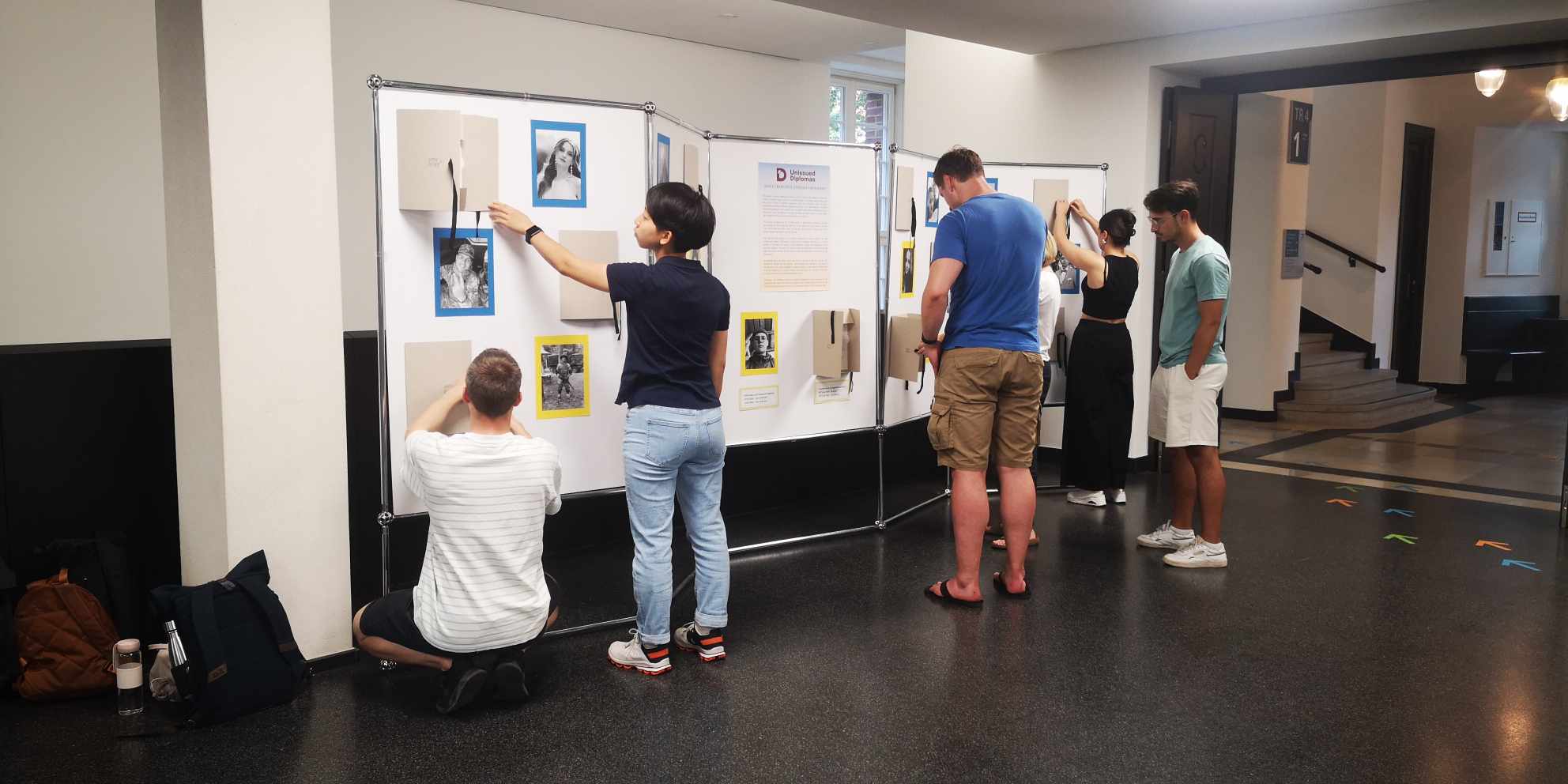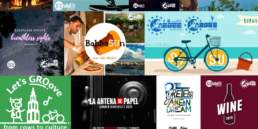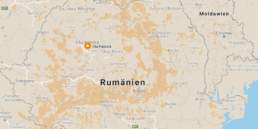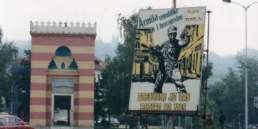Catalina Costache, former President of AEGEE-Dresden, created a gripping exhibition about the fate of Ukrainian students who fell in the war. The title is “Unissued Diplomas” and it is currently displayed at the Technical University of Dresden. The Golden Times spoke with Catalina, who is member of the Help Ukraine Task Force.

Golden Times: Your team created the amazing exhibition “Unissued Diplomas”. What are you showing there?
Catalina: “Unissued Diplomas” is a Ukrainian initiative started in 2023. The project builds a network with Ukrainian citizens to share the stories of students who died due to the ongoing Russian aggression and couldn’t graduate. In their honor, the project creates unissued diplomas that discuss their lives, hobbies, dreams, and deaths. The exhibition also includes photographs of the students in their daily lives, whether as selfies, in their private spaces, or in military attire.
GT: How is the exhibition curated?
Catalina: The storytelling of these narratives relies on my own journey as a student. While studying for my bachelor’s degree in architecture, I often used artist portfolios with a black ribbon for my sketches. The diplomas are glued inside the portfolios and can be opened or closed by the reader. This movement creates a tension, symbolizing the inability of the Ukrainian students to “re-open” or fully close their life chapter as students. They are trapped, unable to have the privilege of graduation, as we do. The black ribbon, used at funerals, ties the portfolios together, allowing the reader to pay respect to the students and their stories.
GT: What else do you display?
Catalina: Along with the portfolios, there are photographs in different formats, showing the students in their daily lives, no different from ours. The photographs are placed on yellow and blue cardboard, creating the illusion of the Ukrainian flag and visually expressing support for Ukraine.

GT: You sent some photos. Where can we read more of these tragic stories?
Catalina: I encourage you to visit the website of the project, where you can find all the diplomas in over seven languages: Unissued Diplomas | Ukrainian Student War Victims. I strongly encourage to organise your own physical exhibition, to interact and connect better with the narratives. The material and curatorial concept are provided. You just need a place, time and a printer to start!
GT: How did you get the idea and the information about the students?
Catalina: The Help Ukraine Task Force organised an open session with Ukranian students during the last EPM. One of them was working in the PR department of the project and presented it to us. The stories touched me, and I decided to organise it in Dresden as well. The information and photos are provided by the network of Ukranian citizens, that were either family, lovers, friends or colleagues with the deceased.
GT: Where in Dresden is it on display?
Catalina: The exhibition is in the Fritz-Foerster-Bau of the Technische Universität Dresden. We deliberately chose this space because it houses the main offices of the Erasmus+ program, the International Office, the Academic Foreign Office, and the Registration Office.

GT: How did the university react when you approached them with the idea of the exhibition? Are they supporting it?
Catalina: The International Office of the university was the only one that supported the idea and helped with securing an exhibition space. Nevertheless, they already knew about the project and wanted to show it last year. This sparked huge discussions within the university and for unknown reasons to me they decided to not open it. This annoyed me, since the university was proudly displaying the Ukrainian flag at the beginning of the war but decided not to take the responsibility to show real stories of Ukranian students.
GT: Who worked on the exhibition?
Catalina: The exhibition was mainly organized and completely curated by me. The International Office helped secure a space and apply for funding. My dear neighbor and fellow HUTF member, Charlotte Burckhard, provided moral support throughout the organization and actively promoted the exhibition with her peers and on her socials, as well as helping me with the budget.
GT: You are member of the Help Ukraine Task Force. How many people are there and what else have you been working on?
Catalina: We are a very small team, with just around four to six active members, and we definitely need more members. Currently, we are working on updating our booklet to share knowledge on starting a fundraiser, promoting Ukrainian culture, becoming civically active, and, of course, organizing this exhibition.

GT: Can you tell us a few words about you?
Catalina: I am 27 years old and was born in Romania. I just finished my master’s in art history and will soon start working in an art museum in Germany. I have been a member of AEGEE since 2017 and was the president of AEGEE-Dresden during 2020-21.
GT: Why are you member of the taskforce?
Catalina: After the unfortunate departure of the Ukrainian antennas last year, I decided to join the Help Ukraine Task Force. I was responsible for the last three fundraisers, PR campaigns, and communication strategies. My motivation was to contribute to the Ukrainian cause, listen to the needs of young Ukrainians, and help as much as possible.
GT: Why do you encourage other AEGEE members to help Ukraine?
Catalina: The recent European elections have shown how tense the political situation is and how important it is to remain vigilant. Ukraine is losing territory daily, and its citizens are requesting military aid. We need to listen! Military aid doesn’t necessarily mean weapons; it can also include technical support and military training. For example, Vladyslav, whose story is part of the exhibition, is wearing an ill fitted military uniform and a pair of Adidas sneakers during winter. We, as an association, strive for a borderless Europe but still aren’t doing enough to protect it from genocide happening on our territory. Humanitarian aid is not enough anymore. The EU with the EPF and several partner cooperatives have already donated towards military aid, so why shouldn’t we?

Related Posts
1st April 2020
The fate of the Summer University 2020 hangs in the balance
Because of the Coronavirus the fate of AEGEE’s trademark project, the Summer University, hangs in the balance. The SUCT does the best it can to keep the project afloat in this crisis.



